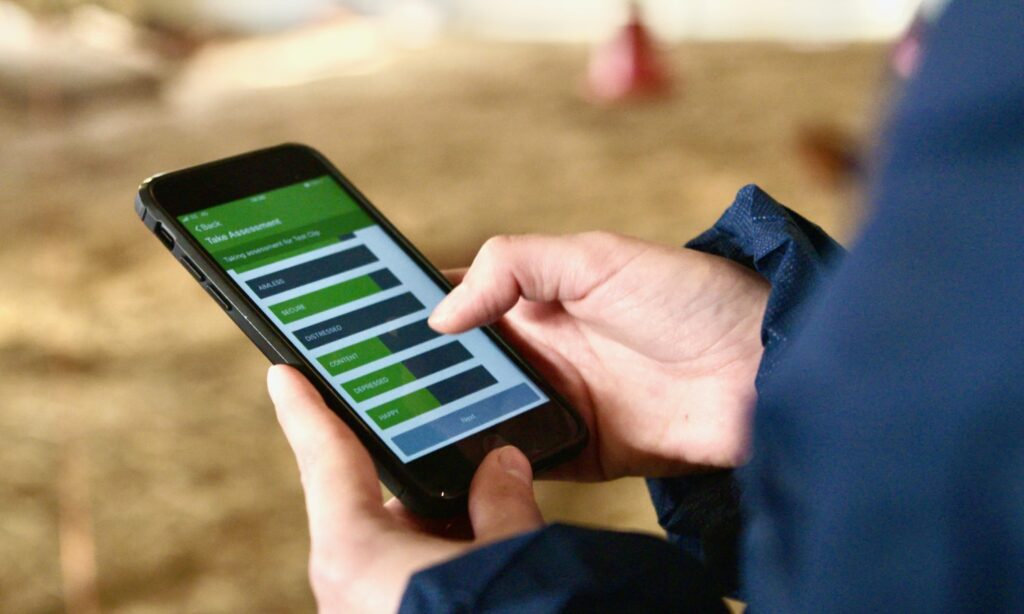Waitrose has begun rolling out a new mobile application that aims to help the retailer assess and begin to understand the emotional well-being of its farm animals.
The technology is designed to help us understand and recognise how animal behaviour is connected to emotional wellbeing. Ultimately, the data will improve their quality of life, and raise welfare standards across the UK.
Trained welfare assessors visiting 1,800 Waitrose farms will use the app to record how animals express their emotions through behaviours such as being relaxed, tense, playful or anxious.
There are currently six versions for different species, including one specifically for pigs.
“This is a huge development for the industry as it is the first time any retailer has explored welfare measures based on the concept of an animal’s freedom to express positive emotions,” said James Bailey, executive director at Waitrose.
“In some countries, farm animals continue to be looked upon as food production systems that need to be managed. This is wrong and for the UK to continue its position as a leader in farming standards, it’s critical that we recognise farm animals as sentient creatures capable of experiencing a range of emotions and positive experiences.”
Francoise Wemelsfelder, lead scientist and researcher at Scotland’s Rural College, which developed the app, added: “Good physical health is vital for good welfare but there is clear consensus among the scientific animal welfare community that factors such as enjoyment, contentment and positive excitement play an equally vital role in ensuring that an animal has a good life.”
How it works
Although the app itself is designed to be practical and easy to use on farm, it is underpinned by rigorous scientific research, which its creator, Professor Wemelsfelder, calls “Qualitative Behavioural Assessment” (QBA).
The method allows animal welfare inspectors to record different expressive qualities of behaviour through the app, such as being relaxed, tense, playful or anxious – behaviours that are indicative of an animal’s emotional body language and possible signs of their general well-being.
The app, which is available on iOS and Android, provides farmers and field staff with a list of around 20 key descriptive terms bespoke to each species.
The field manager/ farm assessor will observe the animals in front of them and score those animals on the individual terms that have been created for that specific species.
There is a balance between terms for describing positive and negative emotion, and each of these terms is scored on a sliding scale that ranges from ‘absent’ (e.g. the animals are not relaxed at all) to ‘strongly present’ (e.g. the animals are completely relaxed).
When they are done scoring, assessors submit the data which are then integrated into a larger pattern to see how the farm they have just scored compares to other farms in the data pool.
Professor Wemelsfelder commented: “QBA not only provides a way to assess these factors, it also opens up the conversation about what positive emotional wellbeing for an animal truly looks like. Because we believe fundamentally that animals are not simply production systems to be managed. They are sentient creatures that must be cared for.”
“While this remains very much in development, the fact that the app will be trialled and developed at scale with a leading supermarket chain is an incredibly significant and positive step for the industry.”




